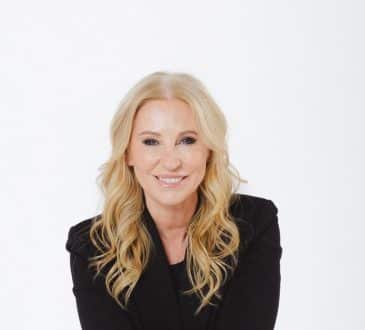Why Getting Off To A Great Start Matters

I remember my 30-year-old daughter’s first fortune cookie message like it was yesterday: The secret to getting ahead is getting started. For a kid still in the single-digit age bracket, I thought it was appropriate.
I’ve also learned over the years, that getting off to a great start can be even better. It’s sets the bar at a high level, keeps us from having to play catch-up, minimizes the potential for unnecessary conflict, and sows the seeds for maximizing potential, whether it’s for individuals, groups, teams, or organizations.
Earlier this week, I visited a company in Memphis, Tennessee, which operates “inside peer groups” comprised of employees who represent a wide range of departments. In their monthly meetings, they develop their leadership skills, explore possibilities for greater collaboration, and address complex challenges and opportunities that cross departmental lines. From time to time, the group will bring recommendations to the CEO for his review. Some of the employees have been involved with these groups for as long as four years (when the company first started the program), while others were participating in their very first meeting.
The groups are run a bit like sports teams. There’s a start and end to the season, a break, and then a new season begins. My job was to serve as the first speaker/workshop facilitator for season five, where I delivered a program specific to helping new groups get off to a great start. It aligns with has been accepted since 1965, when Bruce Tuckman introduced his four stages of group development – forming, storming, norming, performing. Because no one spends as much time as they should forming (agreeing on a collective understanding of the rules of engagement and purpose of the group), the storming stage can be more intense and last far longer than necessary. A lack of attention to forming is too often something from which groups or teams rarely fully recover.
The Five Factors common to high performing groups offers a simple framework that may be helpful for you as a leader when it comes to kicking off any new group or team. The group members use the framework to set expectations and group norms that will guide individual member behavior, group practices, rewards, consequences, and agreement about what success looks like. It not only works for brand new groups, but also for groups and their leaders who may be in need of hitting the reset button. The framework involves a series of questions:
- Do we have all the right people in the room?
Based on the purpose of the group, do the group members offer the diversity of perspectives and shared sensibilities of what being a successful contributor to the group looks like? This not only clarifies expectations of group members for one another, but also serves as the criteria for anyone who may be added to the group down the road. - What will it take to make this a safe environment?
Group members typically define a safe environment as one where they can be completely open with one another – that they are there to learn rather than judge, where their intent is trusted, and where they agree that what’s said in the room stays in the room. Having a safe environment is one thing. Getting everyone to leverage that environment and truly access its incredible power is quite another. At this point, group members define how they will do so and commit to continuous improvement. - Are we engaging in valuable interaction that provides meaningful takeaways?
Driven by group member willingness to truly leverage their safe environment, they recognize that bringing quality topics to the conversation (both challenges and opportunities) is an act of courage and generosity. Here is where meetings preparation is essential. When the topics and the discipline around sharing their perspectives is operating at a high level, the takeaways take care of themselves. - What’s our level of accountability (personal responsibility) to one another?
It’s one thing to be accountable to the leader, but groups or teams whose members are accountable to one another – who believe their personal currency among their colleagues rests with bringing their A games each and every day – are a force of nature. Group members define what accountability looks like for them. - How can our leader serve the group and monitor performance of the first four factors?
Leaders are there to serve the group, not the other way around. They can also be essential when it comes to making sure the first four factors are ever present – not just during the forming stage. This may include leading a group evaluation at the end of each meeting, where the group scores itself against each of the individual factors on a scale of 1-10. They will then identify ways to improve for the next meeting, and with any luck, act on those recommendations at their next gathering.
Tuckman had it right back in 1965, and in 1977, he actually added a fifth stage called adjourning. It’s in this stage where the wellbeing of the team members is more pronounced and when everyone can truly reflect on their success and how they can improve the next time each of them is part of another group. In my experience both leading and serving as a group member, the more time the group spends on stage 1, the better the overall experience. Getting off to a great start is the key to helping the group achieve an even greater result.
Written by Leo Bottary.
Have you read?
# Best CEOs In The World 2019: Most Influential Chief Executives.
# World’s Best Countries To Invest In Or Do Business For 2019.
# Countries With The Best Quality of Life, 2019.
# Most Startup Friendly Countries In The World.
# Global Passport Ranking, 2019.
Add CEOWORLD magazine to your Google News feed.
Follow CEOWORLD magazine headlines on: Google News, LinkedIn, Twitter, and Facebook.
Copyright 2024 The CEOWORLD magazine. All rights reserved. This material (and any extract from it) must not be copied, redistributed or placed on any website, without CEOWORLD magazine' prior written consent. For media queries, please contact: info@ceoworld.biz









